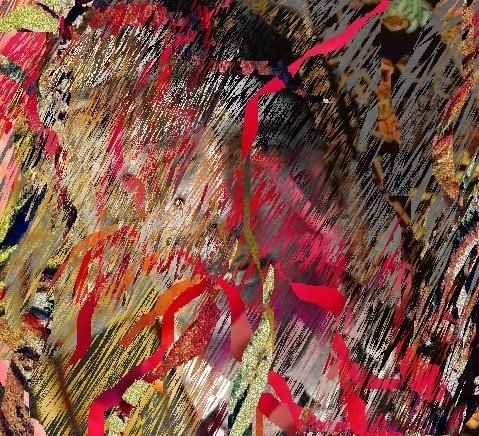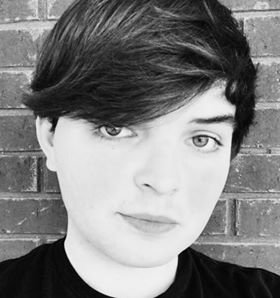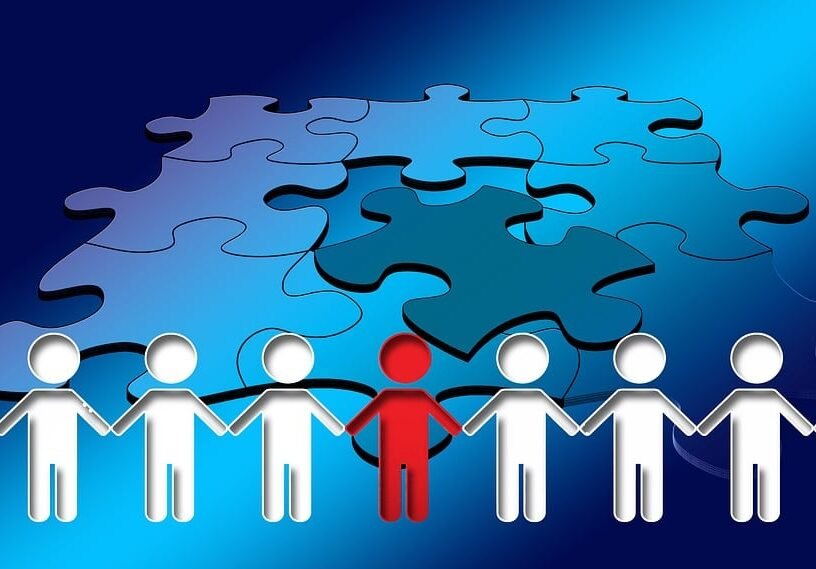Medicalizing gender-nonconforming youth can do irreversible damage to lesbian girls and gay boys being socially and medically transitioned.
On August 8, 2020, I spoke at Can I Get a Witness?: Voices from the Trenches, one voice among many speakers, most of whom were women from all walks of life, across races and classes. Our event showcased 30 speakers from six countries (Brazil, Canada, India, Sweden, the U.K., and the U.S.). Here is the text of my speech, slightly edited and with references throughout noted for our readers. This text includes additional material of interest in selections from Emmeline Pankhurst and Oscar Wilde as well as additional resources that correspond to my remarks. I cheer for the courage of all who hear the call. “Courage calls to courage everywhere, and its voice cannot be denied,” Millicent Fawcett said in 1920. Just the other day, feeling so in the flesh, despite being digital, I discovered, indeed, that she was certainly right: Courage does exactly that.

Can I Get a Witness?
August 8, 2020
“And there is nothing left to do
– Oscar Wilde, “Her Voice,” Poems (1881)
But to kiss once again, and part,
Nay, there is nothing we should rue,
I have my beauty,—you your Art,
Nay, do not start,
One world was not enough for two
Like me and you.”
“We tried it long enough. We submitted for years patiently to insult and assault. Women had their health injured. Women lost their lives. We should not have minded if that had succeeded, but that did not succeed, and we have made more progress with less hurt to ourselves by breaking glass than ever we made when we allowed them to break our bodies.”
– Emmeline Pankhurst, My Own Story (1914)
I am so grateful to be here, gathered among so many brave and brilliant voices, whose work I so admire for seeing the pressing need for free inquiry in a climate of censorship.
My own story, as I think, comes to the crossroads with what has become normalized. As lesbian feminists foresaw, decades ago, this ongoing psychological and sociological phenomenon can be described as the erasure of homosexuality through the medicalization of gender-nonconforming youth. Simply put, it is experimentation, in which pain is being farmed for profit. Our existence as homosexual people, as lesbians and gay men, becomes erased through institutionalized acts of medical violence done to our bodies.
“Gender identity” has become an utterly eerie means of effectively undermining sex as a category of significance and, by extension, undermining sexual orientation, which, while harming everyone, especially harms homosexual people. Whether young or old, we have become unspeakable in this queer state of quiet. And so I come to you today, reflecting here, not because I hold all the answers, as none of us do, but because I ask questions, when thinking critically about life is becoming itself a thoughtcrime. I speak the unspeakable.
In the beginning, there was a little boy, seen as “queer,” who did not act as other boys of his age acted. As for his friends, he played primarily with girls, not boys, loved playing pretend, and, as was clear, was himself non-masculine, despite his sex being male. This description applies not only to my life, but also, as we know, to other members of my sex, who have lived and died. From young to old, males should be able to be non-masculine, to be our own sex as males, without feeling as though we must deny our bodies as ourselves.
Male children not acting “masculine” does not make them necessarily either homosexual or bisexual. They can be heterosexual, because gendered interests, like what somebody wears, is not explicitly indicative of sexual orientation. Yet, based on what we know, boys who are less “masculine” than peers of their sex, the minority of boys who do socialize primarily with girls, often age into being gay men like me. Must males act “masculine” to be male? No. Conservatives and liberals, however, seem to be taking differing paths to compelling an ideal of “masculinity” as essential for male children to be “male.”
I remember one of my friends once telling me about his relative, a male child, who was not seen as masculine. Family members felt disgusted at the idea of a feminine male, because non-masculine males are presumed to be homosexual. So, families and male peers, usually, seek to “correct” the male to act “masculine” to be “correctly” “male,” which is presumed as natural for members of our sex. Misogyny and homophobia both intersect in the impulse to “correct” little boys for not acting “masculine” enough, because this “correction” reinforces both male dominance and female subordination as central to the compulsion of lesbian girls and gay boys to “straighten” ourselves against our will.
We live in an environment where gender-nonconforming children of either sex are seen as somehow always already “the opposite sex.” From the recent Netflix reboot of The Baby-Sitters Club, we see the character Bailey, a “trans kid,” observed male at birth, whose “femininity” appears as evidence of the child truly being “female,” not male. The doctor and the nurse see Bailey as male-sexed, based on the information on the medical chart, showing the sex as male, which is more important than “gender identity.” But, apparently, little boys cannot have long, blond hair and wear glittery butterfly tops, presumed as only what little girls can do. So, genderist authoritarian, moralizing Mary Anne, the babysitter, responds that “if you look at her and not her chart, Bailey is not a boy. And by treating her like one, you are completely ignoring who she is.”
Yet, we might wonder what circumstances underlie Bailey’s development. Bailey is played by the well-known “trans kid” Kai Shappley, championed by the American Civil Liberties Union (ACLU). Reflecting, Kai Shappley’s mother Kimberly Shappley says of her child’s early life:
“I remember even thinking, before Kai was three, that, I think this kid might be gay. And I thought that that could not happen—and that would not happen. We started praying fervently. Prayers turned into googling conversion therapy, and how can we implement these techniques at home to make Kai not be like this. Putting her in time-out for acting like a girl, putting her in time-out for stealing girl toys, spanking her, really spanking her, every time she would say ‘You know I’m a girl.’ No matter what the consequences, she’s persisting in the fact that you should already know she’s a girl.”
About the Shappley case, Feminist Current recently published a piercingly critical piece by the amazing Victoria Smith, also known as Glosswitch. And we see Kai’s experience echoed from Jazz Jennings’ experience as another “trans kid.” In I Am Jazz, co-authored by Jessica Herthel in 2014, Jennings tells us:
“I have a girl brain but a boy body. This is called transgender. I was born this way! […] As I got a little older, I hardly ever played with trucks or tools or superheroes. Only princesses and mermaid costumes. My brothers told me this was girl stuff. I kept right on playing. […] Sometimes my parents let me wear my sister’s dresses around the house. But whenever we went out, I had to put on my boy clothes again. This made me mad!”
On Twitter, the CEO of Mermaids Susie Green, whose child, a member of my sex, whom she subjected to gender-reassignment surgery in Thailand at 16 years old, has expressed sentiments queerly akin to Shappley’s and Jennings’ parents. Green writes:
“My first child, two years old, and I was starting to think that perhaps my child was gay as they were so different to the other little ‘boys’ as the things they were drawn to were largely seen as for girls.” [1]
Mermaids, as an organization, has propagated puberty blockers, cross-sex hormones, and cosmetic surgeries as a “medical solution” to gender dysphoria as a “medical problem.” This enterprise has been profitable, at great cost to lesbian girls and gay boys. It could be seen as a gay genocide in the mass medicalization of so many human beings, especially youth, coming from the homosexual community.
“I’m an unspeakable of the Oscar Wilde sort,” Maurice says to the physician Dr. Barry in E.M. Forster’s novel Maurice. His mental distress over himself being a gay man leads him to desire a “cure” for his homosexuality, maybe of the medical kind. But, as Maurice discovers, he cannot destroy his sexual orientation exclusively toward members of his same sex, as much as his anguish disturbs him. Forster wrote this work between 1913 and 1914, but it was not published until 1971, dedicated to a happier year.
As I read Abigail Shrier’s Irreversible Damage, one passage resonated with me, given my own story in relation to other members of my own sex, especially boys like I once was. Shrier writes:
“We are, by nature, social animals—as Aristotle once observed. We absorb ideas about ourselves from our surroundings more often than we realize and more deeply than we know. If we attend a school or live in a family in which we are made to feel stupid or told we are, some number of us will come to believe it. If a boy is placed in a school in which the other boys tease him for being gay, he may come to internalize their homophobia. He may turn his anger inward, at himself.”
Homophobia has theorized homosexuality as a “problem” that can be “solved” by “conversion,” arguing that one can “transition” from one way of being to another. But, as Shrier herself also writes, sorts of socialization will not “convert” homosexual people. Examples of such “conversion” can include the expected right-wing, religious fundamentalist homophobes trying to “re-educate” us to perform “heterosexuality” in public. But, at present, it also can include the unexpected left-wing homophobic awkward authoritarians telling lesbians and gay men to “unlearn” our “genital preferences” in the name of “trans rights.” Further, homophobia can take the form of medically “converting” gay boys into “straight girls,” doing the same in “converting” lesbian girls into “straight boys.” Given the history of the medicalization of homosexuality, we now see a social movement doing precisely that, silencing and suppressing us until our bodies are destroyed and our names cannot even be spoken.
Among heretics, I haggle with you, here, adventuring with you all, as we work toward a gayer life to come. Where misogyny grows, homophobia blossoms. I challenge you to dare and defy authority for the rights of women and girls and, by extension, for the rights of lesbians and gay men. Dare to be bad. Defy even when Big “Sister” says that you’ve gone mad. After all, why not try? Courage only sounds crazy in a dystopian wasteland where freedom has become slavery.
“My Voice”
from Poems (1881)
by Oscar Wilde
Within the restless, hurried, modern world
We took our hearts’ full pleasure—You and I,
And now the white sails of our ships are furled,
And spent the lading of our argosy.
Wherefore my cheeks before their time are wan,
For very weeping is my gladness fled,
Sorrow hath paled my lip’s vermilion
And Ruin draws the curtains of my bed.
But all this crowded life has been to thee
No more than lyre, or lute, or subtle spell
Of viols, or the music of the sea
That sleeps, a mimic echo, in the shell.
“Violence has been done to us, and I who stand before you in this dock have lost a dear sister in the course of this agitation. She died within three days of coming out of prison, a little more than a year ago. These are things which, wherever we are, we do not say very much about. We cannot keep cheery, we cannot keep cheerful, we cannot keep the right kind of spirit, which means success, if we dwell too much upon the hard part of our agitation. But I do say this, gentlemen, that whatever in future you may think of us, you will say this about us, that whatever our enemies may say, we have always put up an honourable fight, and taken no unfair means of defeating our opponents, although they have not always been people who have acted so honourably towards us.”
– Emmeline Pankhurst, My Own Story (1914)
Note
In Susie Green’s 2017 TEDTalk, “Transgender: A Mother’s Story,” she talks about her child having been a little boy who “was gravitating towards things that you would see as stereotypically female,” whose “favorite outfits were the tutu and Snow White costume.” Green says:
“And, again, that was fine. But not for Dad. So, Jackie’s dad struggled, and he blamed me. His thoughts were that, because I allowed the Polly Pocket and the My Little Pony, that I was facilitating and encouraging. And I disagreed. And it caused tensions. What I had come to the conclusion with, over the sort of years, until she was about two, was that I had a very sensitive, quite effeminate little boy, who was probably gay. But Jack’s dad did not approve of our child’s effeminate behavior, and it created such tensions that we ended up in couple’s counseling. We went to couple’s counseling, and what they said to us as parents that we had to agree, no matter what it was that we agreed upon, we had to agree. At that point, Tim decided that I must agree with him, apparently, and then all the ‘girl toys’ or ‘girly toys,’ as such, were taken away and put away, and Jack was made aware that this was not appropriate. And, suddenly, a confident, happy little boy became quite quiet, withdrawn, very clingy, and tearful.”
This case of gender-nonconforming behavior in a child of the male sex, a departure from the social expectations of “masculinity” for males, resembles that of both Jennings and Shappley. We see, then, that Green’s child grew up under similar parental circumstances as those of Shappley’s child, which, likewise, perhaps could resemble Jennings’ parents. What we can recognize, across these narratives, seems to be that the child’s earliest experiences, at just a few years old, was the conditioning that the mind was “wrong” for the body. That is, as an alienation between the mind and the body becomes seen as always already there, the child learns to see himself or herself as having been “born this way”: born in the wrong body.
For children observed male at birth, parental rejection of them for being non-masculine requires utterly honest unpacking as homophobia. By extension, such homophobia can become internalized by the child, engendering a marked dissociation between the mind and the body. Green’s talk appears described as “the inspirational story of her transgender daughter, who told her when she was four that she should have been born a girl.” Yet, far from “inspirational,” stories of “trans kids” have been missing a critical analysis, however troubling it might be, regarding the trauma of misogyny and homophobia on child development. Communicating to a perceivably gender-nonconforming child of either sex that his or her mind is “wrong” and that his or her body requires “fixing” certainly is of true significance to that child’s sense of self.









Posted by Andy Peachhol
23 August, 2020 at 10:16 am
This is a very thoughtful assessment of the gender situation as it stands. I worry especially about young boys who are told they are not masculine enough. My ex was telling me it's still very taboo for the average dude to seek therapy for mental health issues due to the perception of what is masculine in mainstream society. The gender industry seems to be exploiting this vulnerability as well, by only debating what a woman is and how to define that, while there is no confusion of what a "real man" is. Glad UGM is publishing pieces like this and hope you will continue to amplify this issue. Good job Donovan Cleckley!